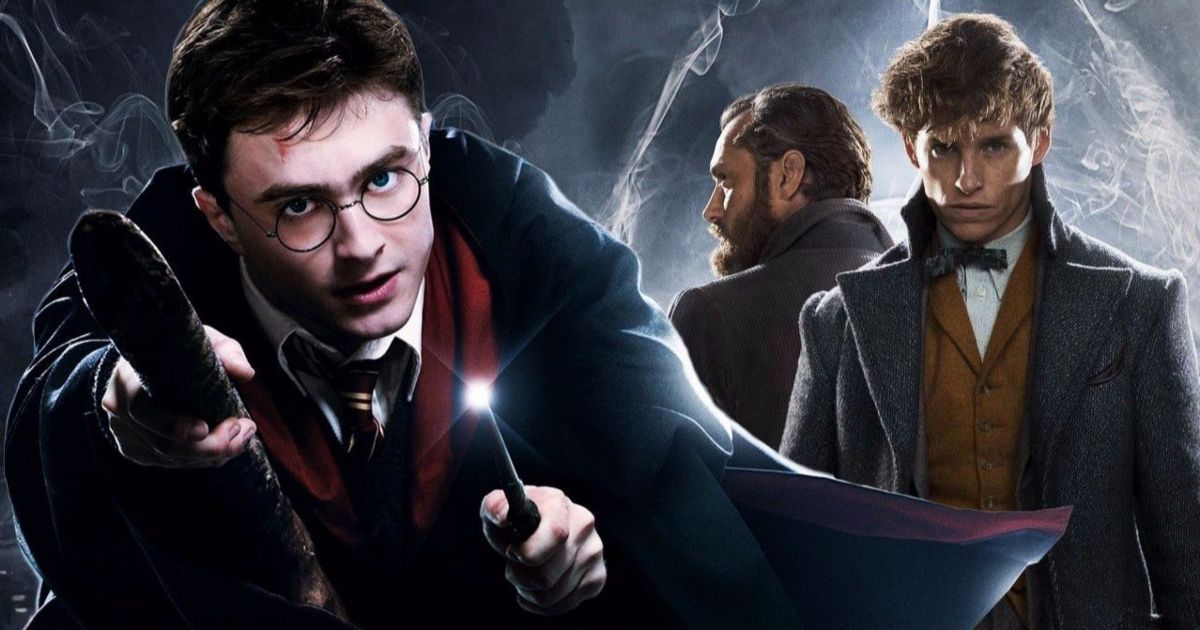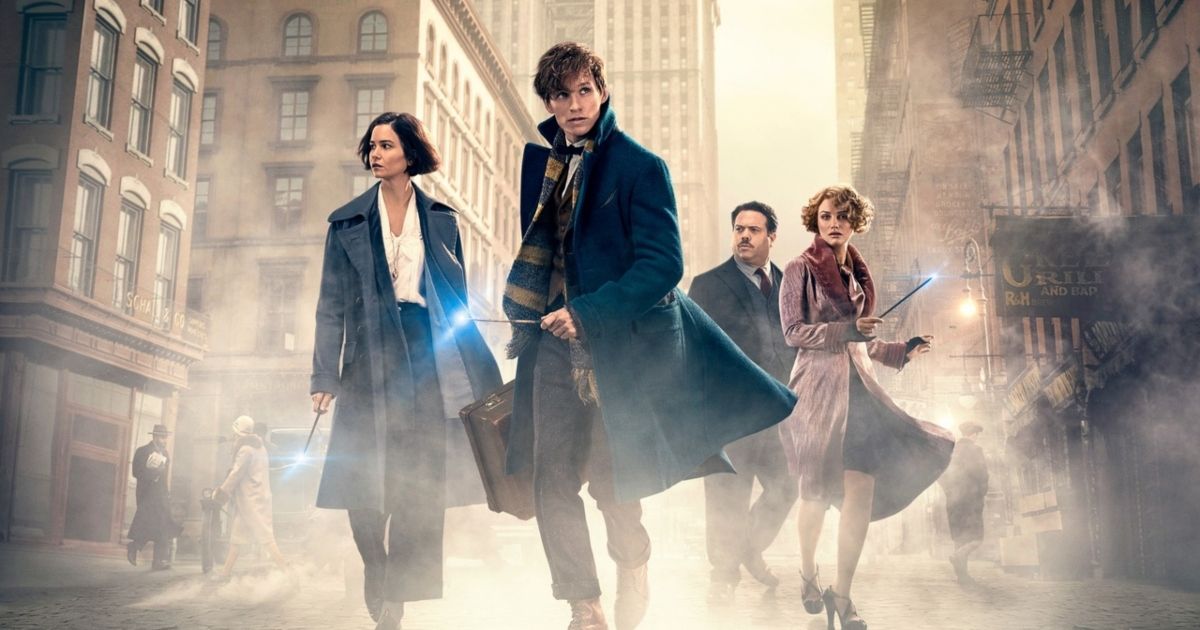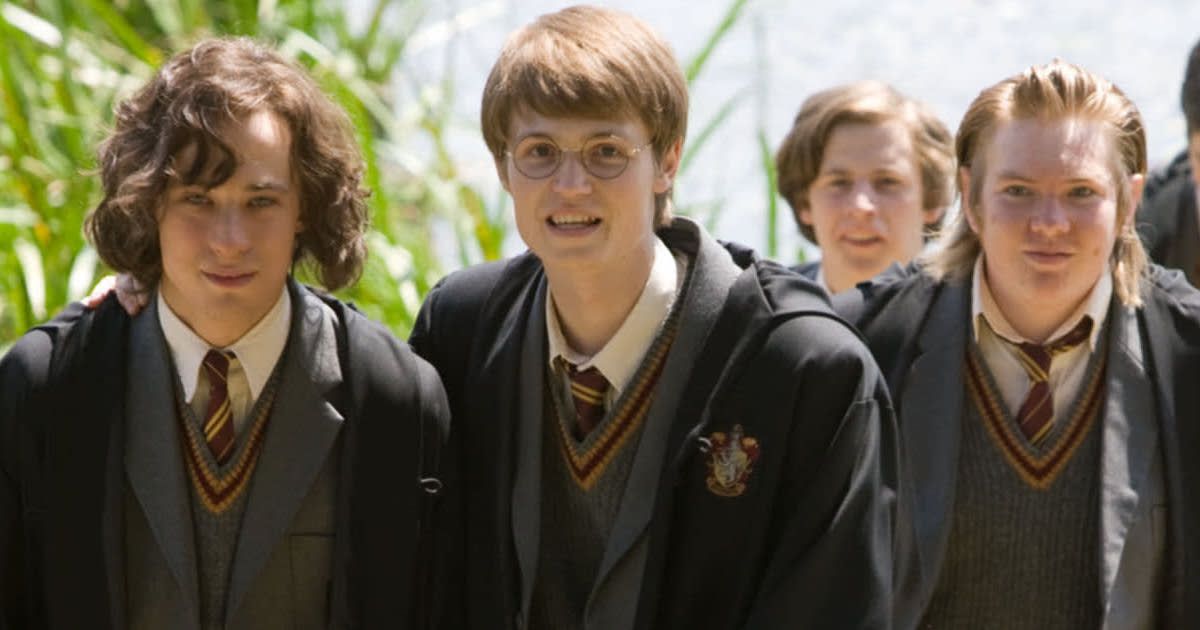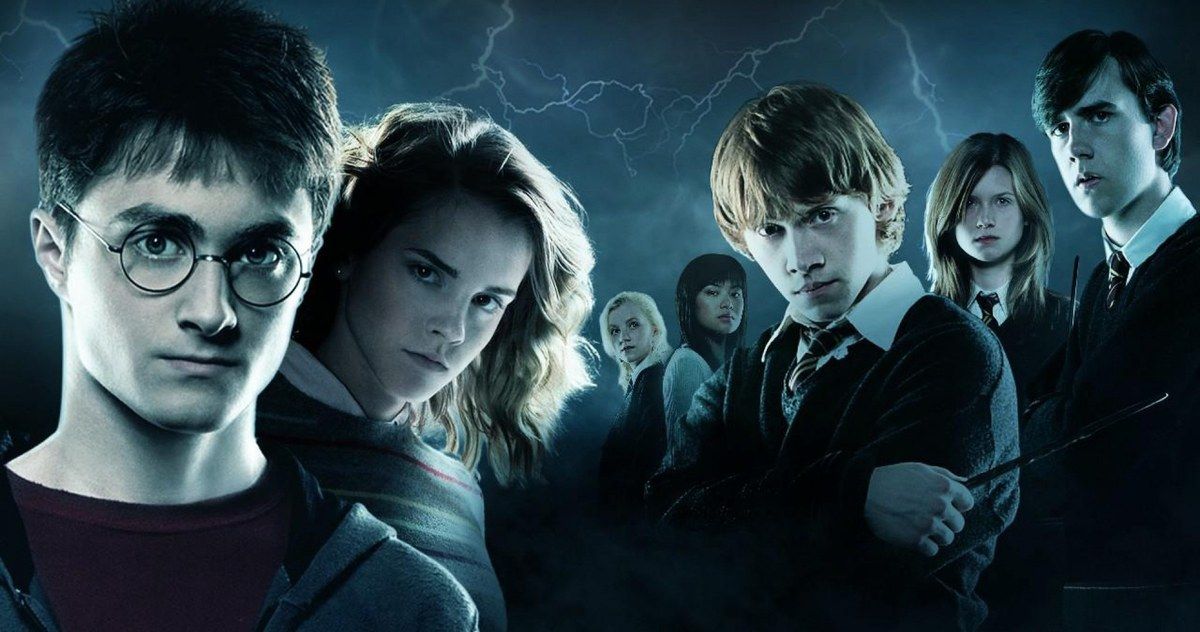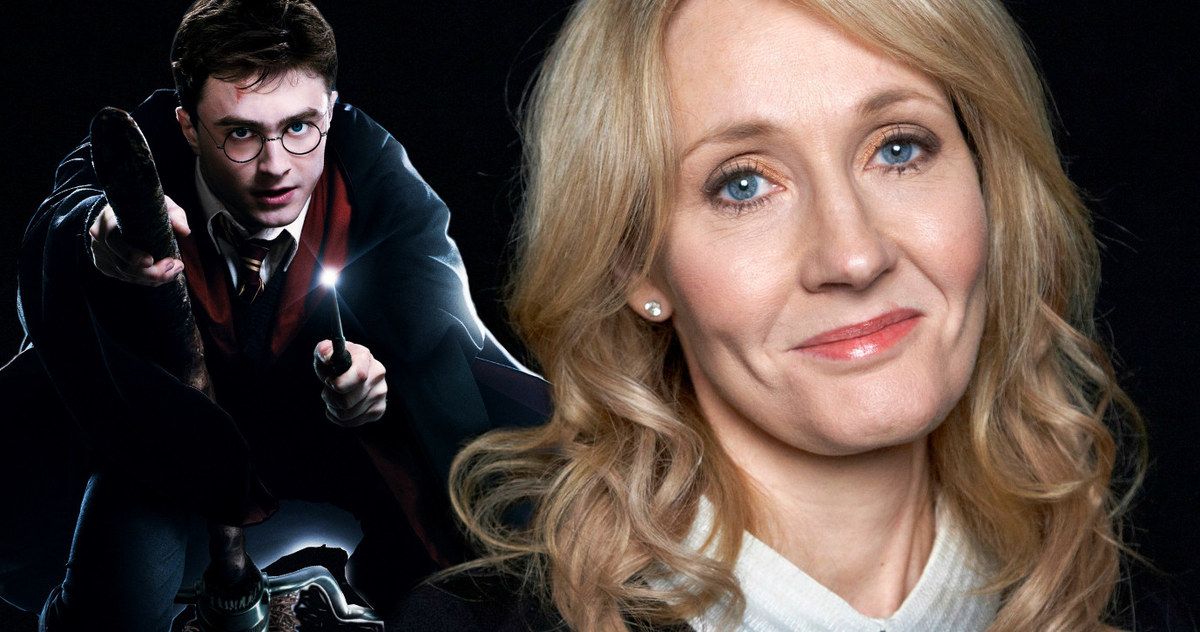The Wizarding World of Harry Potter made headlines recently with the release of Fantastic Beasts: The Secrets of Dumbledore, but not for a good reason. After what was originally intended as a five-part story, the box office and critical disappointment seems to have put the Fantastic Beast franchise on thin ice and leaving the future of the wider Wizarding World franchise in doubt. It is hard to imagine that a film connected to the Harry Potter franchise was out-grossed by Sonic the Hedgehog 2, yet that is the reality of the situation.
The Harry Potter franchise was one of the biggest franchises of the 21st century. Each film in the series ranked in the box office top 10 the years they were released. Harry Potter and the Sorcerer's Stone was the highest-grossing film of 2001 and broke the opening weekend record at the time and then ten years later Harry Potter and the Deathly Hallows Pt. 2 broke the opening weekend record again and went on to become the highest-grossing film of 2011.
With a highly popular film and book series, as well as a popular destination at various Universal Studios theme parks around the globe, it made a great deal of sense to make more films set in the universe, particularly after Disney purchased Star Wars in 2012 and not only announced Episode VII, VIII, and IX but also spin-off films. The franchise rebranded from Harry Potter to The Wizarding World, partially inspired by the Universal Studios theme park, to move the franchise beyond the title character.
Fantastic Beast and Where To Find Them was released in 2016 and was a box office hit, although critical and fan reaction was slightly muted. The 2018 sequel, Fantastic Beast: The Crimes of Grindlewald, was the first time a film in the Wizarding World franchise received a rotten rating on Rotten Tomatoes and was the lowest-grossing entry at that point. Despite Warner Bros.' best efforts, Fantastic Beasts: The Secrets of Dumbledore was a box office disappointment and the studio is now reassessing its plans for the Wizarding World franchise (especially after the legal problems of Ezra Miller and Johnny Depp, stars of the Fantastic Beasts series).
Yet how did one of the most successful media franchises in the world get to this point, and can it ever recover? What decisions can Warner Bros. make to help the series bounce back, and what place does J.K. Rowling have in the franchise she created? This is how The Wizarding World franchise can recover.
Fantastic Beasts is Failing to Bring in New Viewers
On the surface, Fantastic Beasts and Where To Find Them seemed like an ideal spin-off of the Harry Potter franchise that could introduce a new lead character. The premise sounded like a return to the early Potter films as a fun family adventure that if successful could continue in sequels where the lead character journeyed to new places collecting more colorful creatures. That is not what happened though, as the film attempted to tie the movie's story into the larger Wizarding World mythos of Dumbledore and Grindlewald, doubling down in the sequel with more references and callbacks to satisfy the hardcore fans of the series. Instead of allowing the series to grow into its own thing, it was shackled to the past.
Instead of making a family-friendly entry point for newer audiences of kids who might have been born after Harry Potter, The Wizarding World franchise has primarily catered to older audiences who grew up with the Potter series. While it makes a certain amount of sense to cater to the fanbase one already has and one that is older with more disposable income, it also can hurt the long-term viability and success of a series.
This was the case with the decreased box office from younger moviegoers going to see the Fantastic Beast movies, which led to each subsequent film grossing less than its predecessor. While the Wizarding World theme parks at Universal Studios are still successful, it is due to the nostalgia for the older entries and less so for the new films. If the franchise wants to continue it will need to find a way to grow and attract new fans.
Rethink The Types of Harry Potter Spin-Offs
The Wizarding World is such a broad concept that it could theoretically fit a number of different films. It could go for one franchise while also making a number of one-and-done spin-off films that if received positively could launch their own mini-franchise, as should have been the case with Fantastic Beast and Where To Find Them.
The franchise could go the Marvel Studios route and use the broader Wizarding World franchise to explore various different genres, such as a sports movie in the vein of Mighty Ducks but with Quidditch. With how popular the iconography of Hogwarts is, a quick easy way to generate interest is to either tell a movie or Wizarding World TV series set at Hogwarts following a different group of students. Set either before, after, or during the original Harry Potter stories showcasing just an average school year at Hogwarts seems like the logical decision to keep the franchise going.
There are also a lot of unexplored stories only teased in the original Harry Potter franchise. Seeing the adventures of the Marauders, including a young James and Lily Potter, allows for playing with familiar characters while also positioning a new cast of young characters as a way for new audiences to get into the franchise. The filmmakers could also tell the story of the founding of Hogwarts and explore the story of how Godric Gryffindor, Rowena Ravenclaw, Helga Hufflepuff, and Salazar Slytherin came to know one another and the eventual fallout. It expands on characters hinted at in the original story while also exploring a new era of the Wizarding World that audiences don't quite know similar to how Star Wars is doing a far-off prequel with their High Republic initiative.
New Creative Voices
One of the things that made the original Harry Potter film series so unique was the changing directors, each of which gave the films their own unique feel. Chris Colombus, Alfonso Cuarón, and Mike Newell all brought their own unique visions to the Wizarding World, which had the beneficial effect of making the franchise feel more defined and lived in. David Yates directed the final four films in the original series and was chosen due to his work telling more mature political stories on television. Yates' work in the Harry Potter universe helped generate some of the biggest financial and critical hits in the series, and he ended it on a high note.
Yet the decision to bring Yates back not just for one spin-off film, but to oversee the entire Fantastic Beast franchise seems misguided. The director seemed to clash with the tone of the story, and as he stayed on it felt like the Wizarding World franchise was stuck in one type of visual aesthetic.
The franchise needs to return to its roots, allowing a wide variety of different directors to help craft the look and feel of the Wizarding World. It is time for the franchise and should approach a wide array of filmmakers from different backgrounds and styles to breathe new life into the Wizarding World.
J.K. Rowling: Benefit or Hindrance?
The biggest issue facing the wider Wizarding World franchise at this point is creator J.K. Rowling. Once one of the most celebrated authors in history, the Harry Potter story was a monumental touchstone for countless people across the globe. For many, Rowling was a hero. Yet in recent years, Rowling has come under fire for her continued opposition to trans rights and has even been called out by various stars of the Harry Potter and Fantastic Beast franchise, such as Eddie Redmayne and Daniel Radcliffe.
A large portion of the Wizarding World franchise fanbase is Gen X and Millennials with progressive ideals, ones who probably got a certain amount of their moral compass from reading the Harry Potter books at a young age, which featured protagonists battling concepts of prejudice and injustice. This means a portion of the fanbase may not want to give money to Wizarding World films, knowing that the money benefits J.K. Rowling and that she could go use those profits to help fund harmful causes or legislation against trans individuals.
Unlike Star Wars, which George Lucas sold to Disney, Warner Bros. does not control Harry Potter. In the broad strokes and for most intellectual property, it is a good thing that the original author controls the property and not a studio; but in the case of the Wizarding World franchise, that means J.K. Rowling holds all the cards, and she decides the future of the franchise creatively. Warner Bros. has no real power over it, and unless Rowling turns her opinions around and starts making up for past comments, a large portion of the audience will not want to support it. Perhaps it's time this Wizarding World turns in a different direction.

